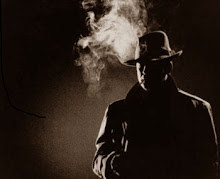As promised, Dear Reader, here is the final chapter on Investigative Interviewing practices as generally performed by me. If you have just found this post, you can read the preceding parts one and two. This post is, thankfully, a bit shorter.
So you've completed the initial interview. Now what?
SUMMARISE
Well, the very first thing I do is write up a brief synopsis with the salient pieces of information given by the Subject. And by 'very first thing', I mean as soon as I'm back from the interview with the details still fresh in my mind.
I don't generally need to relisten to the entire interview at this stage, unless it is particularly long or complex a matter and a bullet-point list of what the Subject had to say on points of interest is all I'm really after.
Keep it short and to the point.
REVIEW
Before you went into the interview, you had a list of particular questions needing an explanation or topics requiring further clarification. Has the Subject answered these satisfactorily? Are there gaps in their narrative, or inconsistencies in what they have told you?
Looking at what information has been provided to you by the Subject, as well as what you already have in your file, you are now ready to...
ESTABLISH FURTHER LINES OF ENQUIRY
An interview is only one information-gathering exercise and it supports and directs other investigative activities. With the information gleaned from the Subject in interview, a number of opportunities to corroberate, or contradict, their account should now be available. Confirm their wherabouts and movements with potential witnesses, confirm validity of items with receipts (Proof of Purchase) or photographs, manuals etc (Proof of Ownership).
However, there may be other lines of enquiry that are not directly borne from interviewing the Subject (such as conducting Area Enquiries) which you should also pursue as part of your wider investigation.
REINTERVIEW?
It is not always necessary to reinterview a Subject but there are two good reasons as to why you might.
In the first circumstance, you might have forgotten to ask particularly crucial questions that need to be addressed - or these new lines of questioning have only become apparant after information gained through conducting other enquiries.
In the second circumstance, serious inconsistencies in the Subject's previous account have become apparant upon further investigation and these need to be explained satisfactorily to you. Usually in this type of second interview, the Subject might be now viewed as a Suspect.
RINSE AND REPEAT
There are probably broad similarities between the investigative process and the intelligence cycle (that might be worth exploring at some stage) where information collected is tested and corroborated before the cycle begins anew.
But that's another topic...
So, I hope I have generally covered the interview methodology I use in a clear enough way and that it makes sense and that you might even agree with? Please post any feedback or questions you might have and, maybe, I might have some slightly edited real-world examples coming up soon.
Tuesday, May 13, 2014
Investigative Interviewing: The Anonymous PI Method Part Three - After The Interview
Posted by Anonymous Investigator at
08:35
Labels:
investigative interviewing,
PI toolbox
Subscribe to:
Post Comments (Atom)


No comments:
Post a Comment